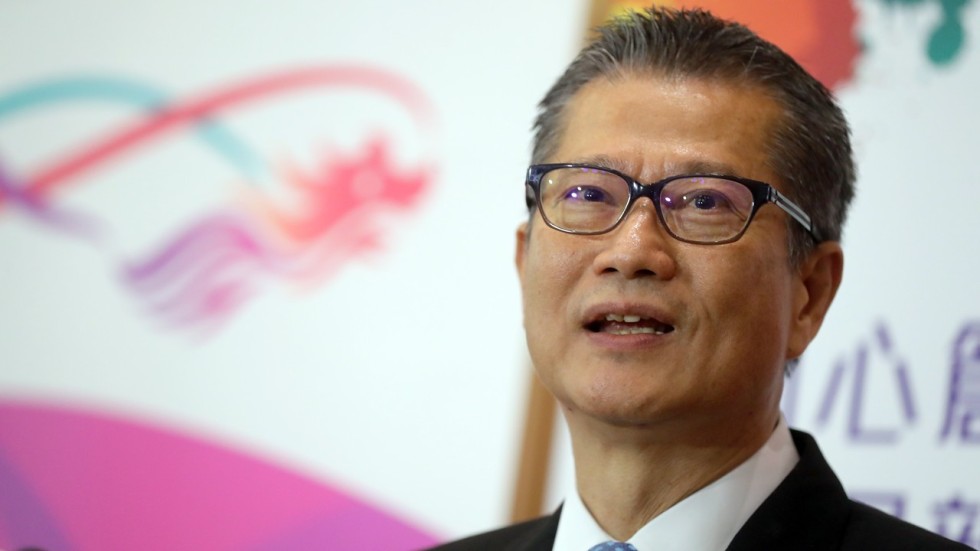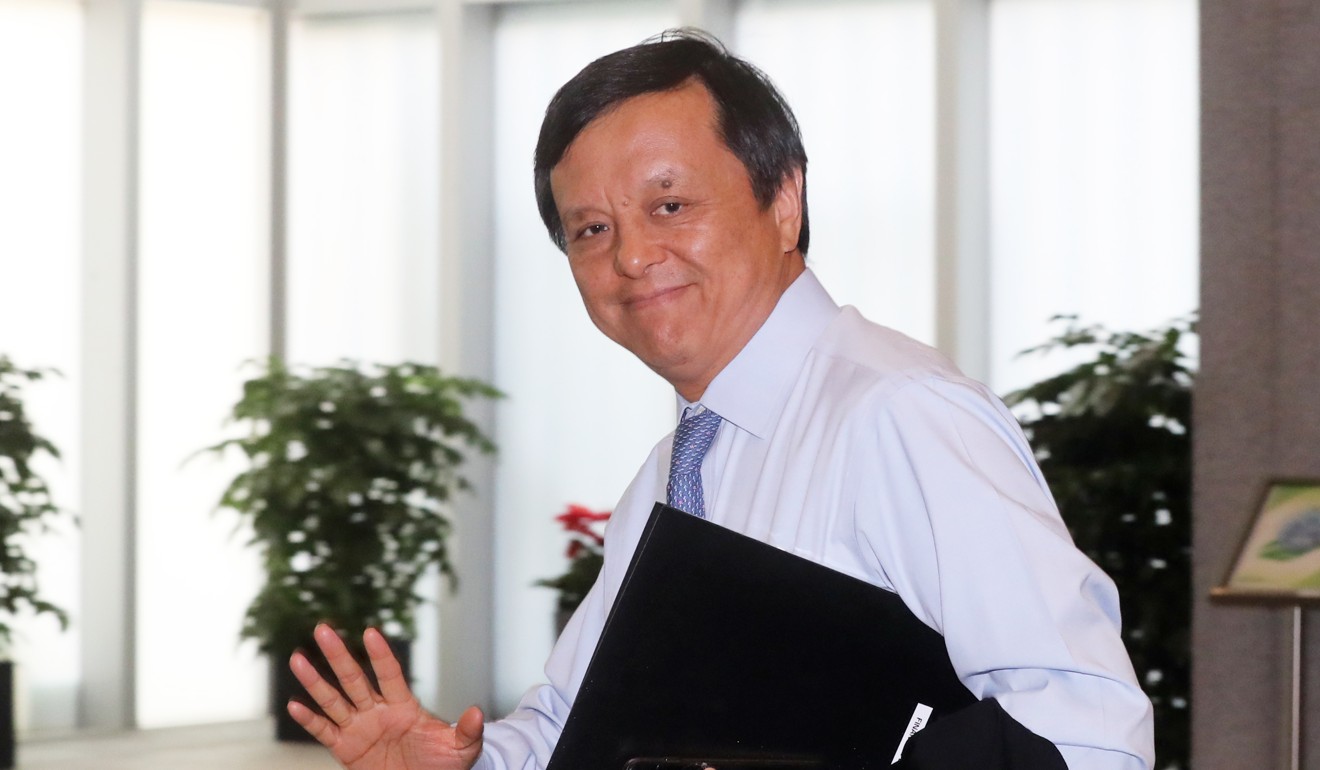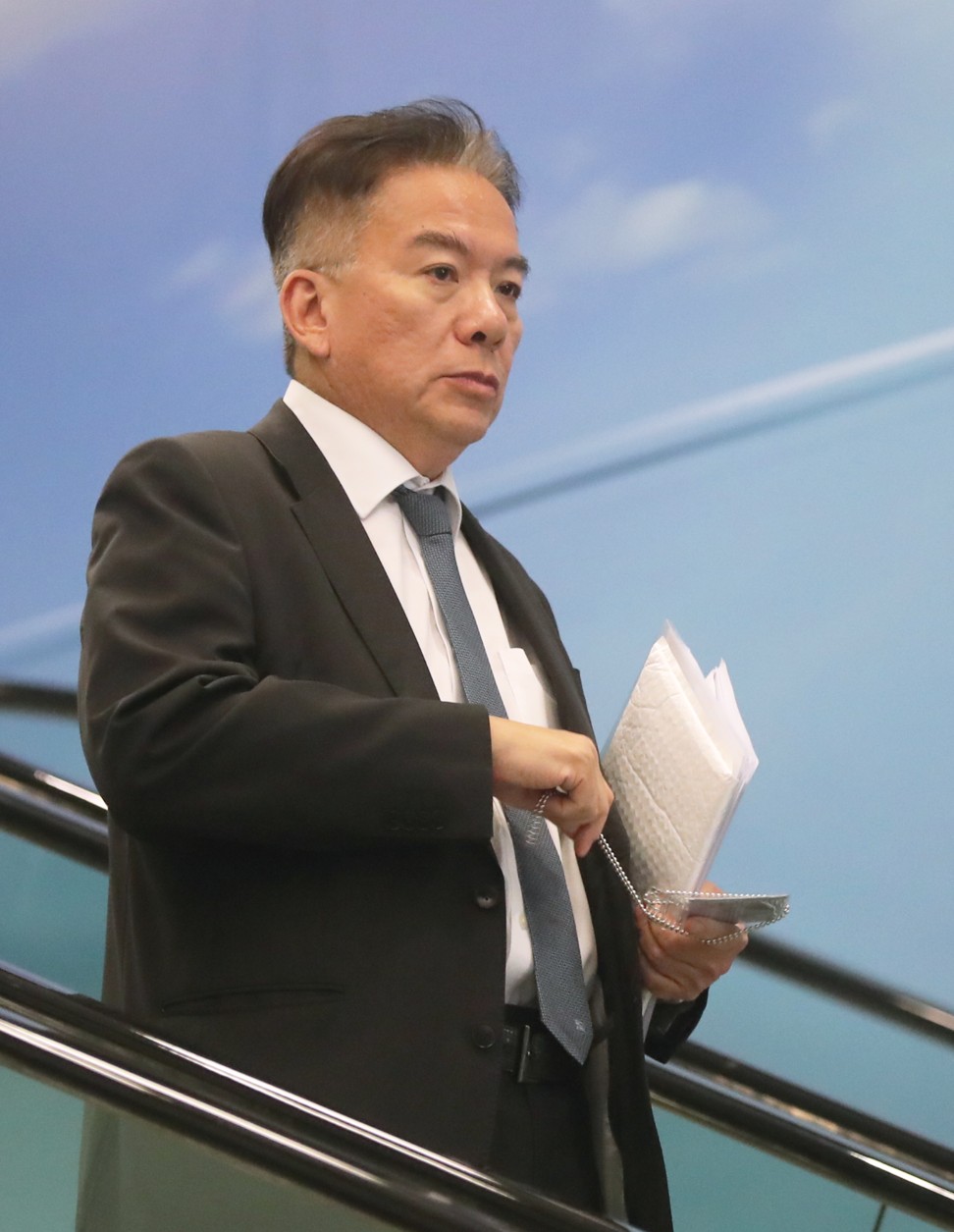Dual-class shares top agenda at financial leaders’ forum in new push by Hong Kong government
Market movers discuss controversial plan to create third listing board on city’s bourse after past efforts failed

Kimmy Chung
A contentious proposal to allow dual share listings on Hong Kong’s bourse emerged top of the agenda at an inaugural meeting of financial heavyweights initiated by the chief executive, signalling the government’s determination to reform the city’s capital markets.The forum, championed by Chief Executive Carrie Lam Cheng Yuet-ngor and chaired by the finance chief, held its first meeting on Wednesday.
Financial Secretary Paul Chan Mo-po confirmed the attendees had discussed whether to allow dual-class share companies to list in the city after receiving separate briefings from Hong Kong Exchanges and Clearing (HKEX) and the Securities and Futures Commission (SFC).
HKEX eyes third board to draw more technology start-ups to Hong Kong
“We had a very good discussion with some very good opinions raised,” Chan told reporters.
He revealed the two market bodies would do “follow-up work” on what had been discussed and that the forum would meet again next quarter.
A government statement quoted Chan as saying at the closed-door meeting: “The Government attaches great importance to enhancing Hong Kong’s competitiveness as an international financial centre. While we endeavour to uphold market quality, we should also actively seek to further develop and broaden our capital markets.”
At the meeting, HKEX, operator of Asia’s third-largest equity bourse by market capitalisation, set out its proposal for the establishment of a third board to give companies with dual-share structures a way to list as well as those with no track record of profit.

The public consultation ended earlier this month, with financial industry professionals still divided over the matter.
HKEX chief executive Charles Li Xiaojia, who is not a member of the forum, presented on Wednesday.
In contrast, the SFC’s support for consultation on the issue reflects a more recent U-turn by the regulator. Two years ago it rejected a stock exchange plan to consult the market on introducing the dual-share structure, at the time considering it lacked sufficient investor protection measures.
Do we accept start-ups that have not made a profit?
DR DAVID WONG YAU-KAR, MPF SCHEMES AUTHORITY
Last month SFC chief executive Ashley Alder, also a forum member, said there was a need to reposition Hong Kong’s listed market amid the shrinking size of initial public offerings in the past decade and trading volume in newly listed stocks.
He said there was a need to strike a balance between “a healthier supply of interesting companies” at the top end of the stock market and greater demand by investors for more diverse companies at the lower end.
A source at the meeting revealed that the consultation showed consensus on broadening markets and allowing dual-class shares but opinion was split on how to do so.
Carrie Lam, who met the forum members before they had their pow-wow, was quoted in the government press release as saying that the financial services sector, as a pillar industry contributing 18 per cent of the Gross Domestic Product, should seize opportunities from the Belt and Road Initiative and the Greater Bay Area proposal to “better serve our real economy”.
Hong Kong moves closer to dual-share listings as SFC backs consultation on third board
Many major technology companies such as Facebook and Google offer dual-class shares, which allow some shareholders to have more rights than others. Unlike the US, Hong Kong bars such shares, favouring the principle of “one share, one vote”.
The policy has led major companies such as mainland e-commerce giant Alibaba to list in New York, which it did in 2014. Alibaba owns the South China Morning Post.
Forum member Dr David Wong Yau-kar, chairman of the Mandatory Provident FundSchemes Authority, noted the attendees on Wednesday had raised their views on the proposed third board.
“Most people agree Hong Kong should attract new-economy companies to list here, but the question is how to do it. Do we need a new board?” he asked. “Do we accept dual-class share companies? Do we accept start-ups that have not made a profit? There are many different ways to do it.”

Wong added he could not detail individual views or the government’s stance, citing confidentiality.
Other forum members include Hong Kong Monetary Authority Chief Executive Norman Chan Tak-lam, Securities and Futures Commission CEO Ashley Alder, and Secretary for Financial Services and the Treasury James Lau.
Executive councillors Bernard Chan, Laura Cha Shih May-lung, Chow Chung-kong and Joseph Yam Chi-kwong are also members, as are Carlson Tong Ka-shing and Moses Cheng Mo-chi.
About 30 government reports on financial matters were distributed to the 10 forum members to keep track of proposals and their implementation and they agreed to meet again in the next quarter.
Wong described the forum as not a decision-making body but a high-ranking consultation group.
“Carrie Lam is very concerned about the group, as she initiated it in her manifesto,” he added.
The chief executive announced the forum during her election campaign earlier this year, saying the government should play a more active and leading role in policymaking and matters of monetary stability, financial safety and regulation. The idea was to reinforce Hong Kong’s position as an international financial centre.
Lam believed the forum could offer a platform to discuss strategic and forward-looking proposals and keep track of the implementation of such proposals by government departments and other relevant parties.
This article appeared in the South China Morning Post print edition as:
GROWING SUPPORT FOR DUAL-SHARE LISTING PROPOSAL
www.fotavgeia.blogspot.com
Market movers discuss controversial plan to create third listing board on city’s bourse after past efforts failed

Kimmy Chung
A contentious proposal to allow dual share listings on Hong Kong’s bourse emerged top of the agenda at an inaugural meeting of financial heavyweights initiated by the chief executive, signalling the government’s determination to reform the city’s capital markets.The forum, championed by Chief Executive Carrie Lam Cheng Yuet-ngor and chaired by the finance chief, held its first meeting on Wednesday.
Financial Secretary Paul Chan Mo-po confirmed the attendees had discussed whether to allow dual-class share companies to list in the city after receiving separate briefings from Hong Kong Exchanges and Clearing (HKEX) and the Securities and Futures Commission (SFC).
HKEX eyes third board to draw more technology start-ups to Hong Kong
“We had a very good discussion with some very good opinions raised,” Chan told reporters.
He revealed the two market bodies would do “follow-up work” on what had been discussed and that the forum would meet again next quarter.
A government statement quoted Chan as saying at the closed-door meeting: “The Government attaches great importance to enhancing Hong Kong’s competitiveness as an international financial centre. While we endeavour to uphold market quality, we should also actively seek to further develop and broaden our capital markets.”
At the meeting, HKEX, operator of Asia’s third-largest equity bourse by market capitalisation, set out its proposal for the establishment of a third board to give companies with dual-share structures a way to list as well as those with no track record of profit.

The public consultation ended earlier this month, with financial industry professionals still divided over the matter.
HKEX chief executive Charles Li Xiaojia, who is not a member of the forum, presented on Wednesday.
In contrast, the SFC’s support for consultation on the issue reflects a more recent U-turn by the regulator. Two years ago it rejected a stock exchange plan to consult the market on introducing the dual-share structure, at the time considering it lacked sufficient investor protection measures.
Do we accept start-ups that have not made a profit?
DR DAVID WONG YAU-KAR, MPF SCHEMES AUTHORITY
Last month SFC chief executive Ashley Alder, also a forum member, said there was a need to reposition Hong Kong’s listed market amid the shrinking size of initial public offerings in the past decade and trading volume in newly listed stocks.
He said there was a need to strike a balance between “a healthier supply of interesting companies” at the top end of the stock market and greater demand by investors for more diverse companies at the lower end.
A source at the meeting revealed that the consultation showed consensus on broadening markets and allowing dual-class shares but opinion was split on how to do so.
Carrie Lam, who met the forum members before they had their pow-wow, was quoted in the government press release as saying that the financial services sector, as a pillar industry contributing 18 per cent of the Gross Domestic Product, should seize opportunities from the Belt and Road Initiative and the Greater Bay Area proposal to “better serve our real economy”.
Hong Kong moves closer to dual-share listings as SFC backs consultation on third board
Many major technology companies such as Facebook and Google offer dual-class shares, which allow some shareholders to have more rights than others. Unlike the US, Hong Kong bars such shares, favouring the principle of “one share, one vote”.
The policy has led major companies such as mainland e-commerce giant Alibaba to list in New York, which it did in 2014. Alibaba owns the South China Morning Post.
Forum member Dr David Wong Yau-kar, chairman of the Mandatory Provident FundSchemes Authority, noted the attendees on Wednesday had raised their views on the proposed third board.
“Most people agree Hong Kong should attract new-economy companies to list here, but the question is how to do it. Do we need a new board?” he asked. “Do we accept dual-class share companies? Do we accept start-ups that have not made a profit? There are many different ways to do it.”

Wong added he could not detail individual views or the government’s stance, citing confidentiality.
Other forum members include Hong Kong Monetary Authority Chief Executive Norman Chan Tak-lam, Securities and Futures Commission CEO Ashley Alder, and Secretary for Financial Services and the Treasury James Lau.
Executive councillors Bernard Chan, Laura Cha Shih May-lung, Chow Chung-kong and Joseph Yam Chi-kwong are also members, as are Carlson Tong Ka-shing and Moses Cheng Mo-chi.
About 30 government reports on financial matters were distributed to the 10 forum members to keep track of proposals and their implementation and they agreed to meet again in the next quarter.
Wong described the forum as not a decision-making body but a high-ranking consultation group.
“Carrie Lam is very concerned about the group, as she initiated it in her manifesto,” he added.
The chief executive announced the forum during her election campaign earlier this year, saying the government should play a more active and leading role in policymaking and matters of monetary stability, financial safety and regulation. The idea was to reinforce Hong Kong’s position as an international financial centre.
Lam believed the forum could offer a platform to discuss strategic and forward-looking proposals and keep track of the implementation of such proposals by government departments and other relevant parties.
This article appeared in the South China Morning Post print edition as:
GROWING SUPPORT FOR DUAL-SHARE LISTING PROPOSAL
www.fotavgeia.blogspot.com

Δεν υπάρχουν σχόλια:
Δημοσίευση σχολίου